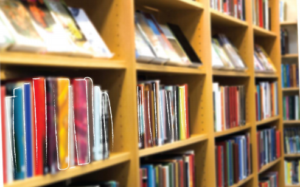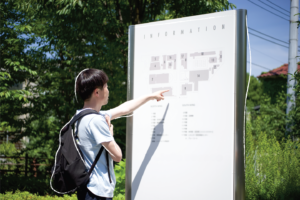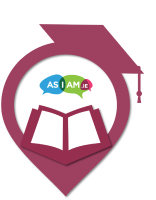Accessing the Library
-
AsIAm
-
10/05/2021
-
4 minutes read
The library will be an important and useful place during your studies. It’s not just for borrowing books – it can also be a quiet space, a place to get support, or somewhere to take a break from a busy campus.
Many students find the library helpful. But it can also feel confusing or overwhelming at first. This guide explains how to use the library, what supports are available and who you can ask for help.
What Can I Use the Library For?
- Borrowing books or reading them there
- Using computers, printers, or quiet study areas
- Get help with studying, essays or research
- Finding support for research and study skills
- Taking a break from loud or crowded areas on campus

How to Borrow a Book
- Search the Library Website or Catalogue
- Go to the library website or use a computer in the library
- Type in the book title or subject (e.g., “Irish History”)
- Make a note of the book’s call number or shelf mark – this tells you where to find it
- Find the Book on the Shelf
- Follow the signs and use the shelf labels
- Books are usually sorted by subject and then by the author’s last name
- Ask a librarian if you’re not sure where to look
- Borrow the Book
- Use the self-service machine
- Scan your student ID card, then scan the book
- A receipt will print with the due date (when to return the book)
- Keep the receipt as a reminder
How to Return a Book
- Go to the Self-Service Machine
- Select ‘Return’ on the screen
- Scan the book’s barcode
- Follow the instructions to place the book in the right trolley or slot
- Take the receipt – this proves you returned the book
Reading a Book Online
Some books are available online as e-books. To access them:
- Go to the library website and log in with your student details
- Search for the book title
- If it says, “Available Online”, click the link
- You may be able to:
- Read it online
- Download chapters
- Print or save certain pages
- Borrow the whole book for a short time
You might need a free program like Adobe Digital Editions to read or download some e-books. Ask a member of library staff for help if needed.

Finding Journal Articles
Journal articles are shorter than books and focus on specific topics. Your lecturers might give you a list of articles to read, or you can search for them yourself.
To find an article:
- Use the library website or a database like JSTOR
- Search by title, subject, or author
- You can often read or download the article as a PDF
- Look for the Abstract – a short summary that tells you what the article is about
If you don’t know the exact article you need, try using a keyword related to your topic and use filters to narrow down the results.
Additional Support for Autistic Students
Many libraries can provide extra support for Autistic students, which may include:
- Help with borrowing, searching for books, or using equipment
- Longer borrowing times or more books (ask Disability Support)
- Quiet study areas or assistive technology rooms
- Access to books or materials in accessible formats
Ask the Disability Support Service for more details about what support you can receive.
Academic Writing Centre
Most libraries have an Academic Writing Centre. This service can help you with:
- Writing essays and assignments
- Referencing and citations
- Understanding your reading materials
- Planning and structuring your work
You can often book a one-to-one session or attend a workshop. These sessions are free and available to all students. Check your college website or ask the library how to book an appointment.
Sensory and Accessibility Tips
- Libraries can get busy and noisy during exams – try visiting early or late in the day
- Bring noise-cancelling headphones or earplugs if needed
- If bright lights are a problem, look for a spot with natural light near a window or wear sunglasses
- If entrance barriers are stressful for you, speak to a library staff member or ask about alternative entrances

Library Tours
At the beginning of term, most universities and colleges run library tours as part of Orientation or Freshers Week. You can ask at the front desk of the library how to sign up.
These tours can help you:
- Learn where everything is
- Get comfortable in the building
- Meet library staff
- Ask questions in a relaxed way
If you prefer a quieter or one-to-one tour, ask your Disability Support Service – they may be able to arrange one for you.
Avoiding Library Fines
Books have due dates. If you return a book late, you may have to pay a fine. To avoid this:
- Set a phone reminder when you borrow a book
- Keep your library receipt
- Log into the library website to check your loans or renew books
- The library might also send reminder emails
If you do get a fine, try to return the book and pay it as soon as you can. Fines can stop you from borrowing other books until they are paid.
Who Can Help?
If you need help at any time, don’t be afraid to ask. You can talk to:
- Library staff – for help with borrowing, finding books, or using machines
- Disability Support Service – for extra time, quiet spaces, or other accommodations
- Academic Writing Centre – usually based in the library, where you can get support with writing essays, referencing, and study skills
Library staff are there to support you throughout your studies. With a little preparation, the library can become one of the most useful and welcoming spaces on campus.



